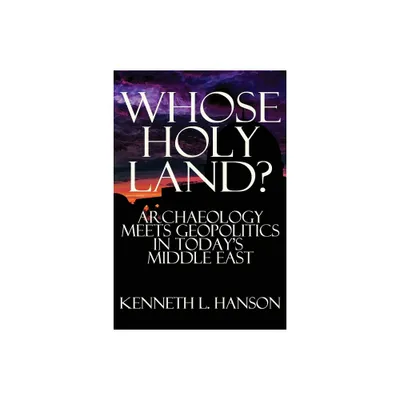Home
Holy Land as Homeland? Models for Constructing the Historic Landscapes of Jesus
Loading Inventory...
Barnes and Noble
Holy Land as Homeland? Models for Constructing the Historic Landscapes of Jesus
Current price: $85.00


Barnes and Noble
Holy Land as Homeland? Models for Constructing the Historic Landscapes of Jesus
Current price: $85.00
Loading Inventory...
Size: OS
*Product Information may vary - to confirm product availability, pricing, and additional information please contact Barnes and Noble
The quest for the historical Jesus has invariably tried to make sense of his world by constructing what it considers to be the historic landscapes that he inhabited. These essays explore how we do not create an actual past or rediscover an actual landscape with its towns and villages but 'imaginary homelands' that allow us to inhabit and possess the past. The papers in this volume explore the ways in which constructions of the Holy Land as homeland have been mediated through history textbooks, geographies and maps, and continue to exert an influence on contemporary scholarship. The complex interrelationships between scholarship and its national settings is a constant thread throughout the papers: the work of many of the iconic figures of nineteenthand twentieth-century European biblical scholarship (Moxnes); the roots of European constructions of homeland from the Enlightenment onwards (Birch); American biblical scholarship in the twentieth century (Long); cartography and the construction of homeland (Whitelam); the constructions of a Galilaean homeland for Jesus (Baergen and Vaage); a contemporary imagined homeland in British politics (Crossley). The final essay takes up the themes of 'home', 'homeland' and 'homelessness' to reflect on the methods and models that underpin contemporary scholarship (Penner and Lopez). These essays show how the scholarly task is a continuing questioning- and self-questioning-of the models and methods with which we are most at home. The papers collected in this volume were presented in Oslo as one of the events organized by the 'Jesus in Cultural Complexity: Interpretation, Memory and Identification' project directed by Halvor Moxnes at the University of Oslo and funded by the Norwegian Research Council.


















